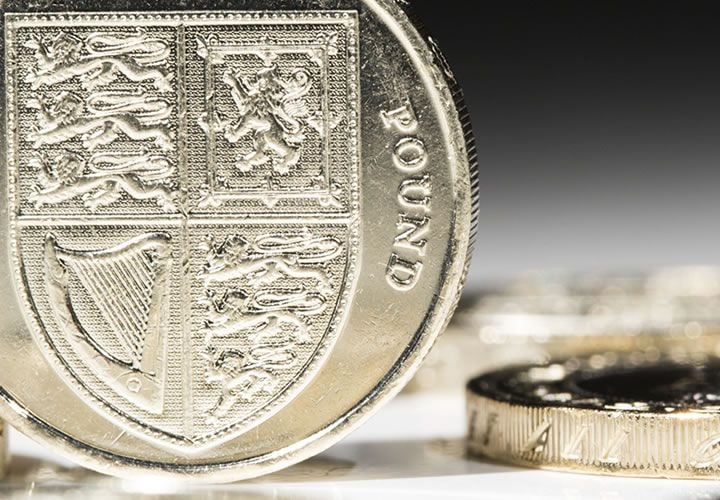British Pound: Everything You Need To Know For The Week Ahead
- Written by: James Skinner

A volley of economic numbers, monetary policy chatter and stalled Brexit negotiations will all help determine whether Pound Sterling can recover further.
The week ahead offers scope for the pound to euro exchange rate to continue its corrective move higher, given commentary around economic data and risks around the European Central Bank’s forthcoming meeting, but it could also see the British currency condemned to revisit the depths seen in the final days of August.
With the IHS Markit Manufacturing PMI having shown a sharp uplift in the British manufacturing industry for August on Friday, supporting moment of reprieve and upward mobility for the pound throughout Friday’s session, sister-surveys of the construction and all important services industry will be watched closely on Monday and Tuesday.
August’s manufacturing PMI came in at 56.9, far in excess of the economist consensus for a reading of 55.0, and up sharply from the July reading of 55.1 - marking a three year peak for the index.
Much like with Friday’s data, expectations going into the forthcoming reports are mixed, with the economic bellwether construction industry forecast by economists to have seen a modest slowdown, while the condition of the dominant services sector should have improved.
“August’s Markit/CIPS services survey should indicate that the sector maintained a decent amount of momentum heading into Q3....Taken together with this week’s pick-up in the manufacturing PMI, we expect the all-sector PMI to inch up from 53.9 to around 54.5,” says Ruth Gregory, a UK economist at Capital Economics.
The pound to euro exchange rate broke back above the 1.0900 level on for the first time since mid-August on Friday.
This came closely on the heels of fears over the ECB’s likely stance on recent euro strength have called a halt to the currency pair’s decline over Wednesday and Thursday. The exchange rate had fallen by more than 7.5% during the year to date up to that point.
“We expect Mario Draghi to express concern about this and explicitly mention that the stronger euro is the main reason the ECB has lowered its inflation projection and that there is further downside risk,” says Pernille Bomholdt Henneberg, chief analyst at Danske Bank.
Consequently, a less hawkish European Central Bank that sets out to jawbone the euro lower at its regular press conference on Thursday could also be a source of gains for the pound to euro rate during the coming week.
An evolving monetary policy narrative in the UK may also help to prop up the pound, with some economists have joined Bank of England rate setter Michael Saunders in putting the subject of a BoE interest rate hike back on the table.
“Brexit is not enough to keep rates on hold: The short-term risks following the Brexit vote have not manifested in a serious way....we look for a first rate hike in November 2017,” says Kallum Pickering, a UK economist at Berenberg.
Pickering’s comments come after the BoE’s Saunders told an audience earlier in the week that he sees a 25 basis point hike in the base rate as already being appropriate. He was one of two rate setters who voted for an increase at the BoE’s two previous meetings.
However, regardless of what the the ECB governing council says on Thursday, despite renewed calls for rate hikes in the UK and even in the face of more resilient economic numbers, the pound to euro exchange rate will remain vulnerable to Brexit-related upset during the week ahead and for some time to come.
“Brexit negotiations appear to have hit a snag that may not get resolved quickly and this will raise anxiety over the period of time remaining before reaching the March 2019 deadline,” says Derek Halpenny, European head of global markets research at MUFG . “Once the negotiations shift to transition proposals where there is plenty of common ground, the pound will resume the strengthening that was taking place in advance of the BoE’s dovish communications on 3rd August.”




